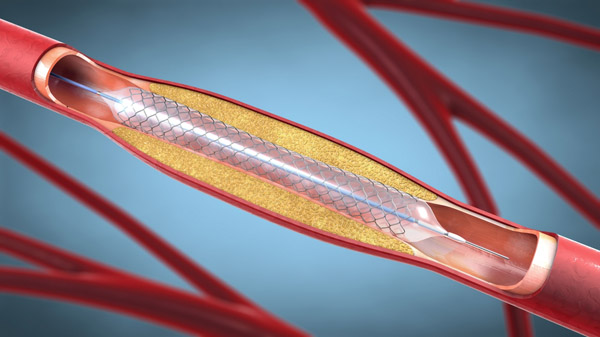A Guide to Heart Disease Treatments

Heart disease is a term that covers a variety of heart conditions. There are numerous types of heart disease that can have a negative impact on various parts of the organ. Some common types of heart conditions include coronary heart disease and arrhythmia. Heart conditions can cause serious problems. Fortunately, several effective treatment options can help you depending on your condition and needs.
Heart disease diagnosis and treatment
The types of tests a person needs for diagnosing heart disease depends on the condition a doctor thinks a person might have. Regardless of the type of heart disease a patient has, the doctor will most likely ask the patient about the symptoms and personal and family medical history and perform a physical exam. If the doctor suspects a patient has heart disease, further tests will be done to determine what is happening inside the heart. Heart disease treatment can vary based on the condition. Treatment for heart disease usually includes medications, lifestyle changes or medical procedures or surgery.
Lifestyle changes
Lifestyle changes may help manage heart disease. Individuals who smoke are required to quit. Exercise is important. Patients should prioritize exercising since exercise can help strengthen the heart as well as blood vessels. It can also reduce stress and blood pressure while boosting HDL cholesterol levels. Changes in lifestyle and diet can end up reducing the risk of heart disease significantly. Eating a low-sodium and low-fat diet is recommended and people should also limit alcohol intake.
Medications
If lifestyle changes alone do deliver good results, a doctor may prescribe medications. The doctor will determine the type of medication a person needs depending mainly on the type of heart disease. Many different types of medications are available for most heart conditions. The medications may be prescribed for a multitude of reasons depending on a patient’s condition. The doctor will work with a patient to find a medication that is effective. The doctor may also prescribe medications that can help treat underlying conditions that can affect the heart, like diabetes before they end up becoming problematic.
Medical procedures or surgery
In some cases, if medications do not help with a heart condition, a doctor may recommend particular procedures or surgery. The type of heart disease and the degree of damage to the heart will be taken into consideration when making decisions. It can take a long period for patients to recover from heart surgery. Surgery and particular medical procedures can treat heart problems and blockages. They can help especially in cases where medications cannot be effective particularly in the advanced stages of heart disease.
Visit your doctor
Some symptoms of heart disease include shortness of breath, chest pain and fainting. If you have these symptoms, you should seek emergency medical care. It is easier to treat heart conditions when they are detected early. You should talk to your doctor about any concerns you have regarding your heart health and general health. Your doctor will be happy to answer your questions and to offer the needed services.
Get more information here: https://floridapremiercardio.com or call Florida Premier Cardiology at (561) 325-6495
Check out what others are saying about our services on Yelp: Read our Yelp reviews.
Recent Posts
Heart disease is one of the leading causes of death worldwide. A coronary stent is a small, metal mesh tube that is placed into narrowed or blocked coronary arteries to restore proper blood flow. This medical device can help prevent heart attacks and reduce the symptoms of coronary artery disease. By keeping the arteries open…
When symptoms of cardiovascular disease arise, seeking timely medical intervention can make a significant difference. Angioplasty is a procedure designed to restore blood flow in blocked or narrowed arteries, helping to prevent serious complications such as heart attacks. Understanding the reasons why a cardiologist may recommend this procedure can provide clarity and confidence when making…
Cholesterol management is essential for maintaining heart health and reducing the risk of cardiovascular disease. High cholesterol levels can contribute to plaque buildup in the arteries, leading to serious conditions such as heart attacks and strokes. Adapting to a cholesterol management program involves lifestyle changes, dietary adjustments, and medication adherence when necessary. Implementing effective strategies…
Wondering if you should undergo varicose vein treatment? Many people who have varicose veins will choose to have them treated. They either do not like the way their varicose veins look, are experiencing some discomfort or pain associated with them or a combination of the two. Whatever reason for your wanting to understand more about…


